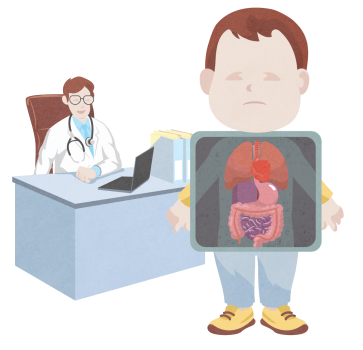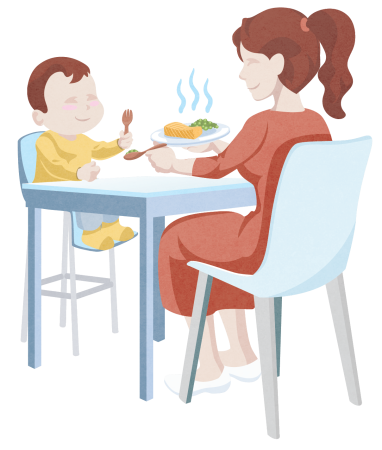
What to do when my child’s tummy is upset
Tiny tummies are vulnerable and susceptible to digestive issues, especially if they don’t agree with the nutrients they are fed. You may notice your little one crying all the time, and nothing you do seems to soothe him or her. Indigestion in babies manifests in different ways, so arm yourself with the right information to identify or avoid these tummy troubles.

Signs that your baby is having tummy troubles:
Spitting up
It’s normal for babies to spit up milk due to their immature digestive system. The culprit? A weak valve in the esophagus. If coughing and wheezing follows, however, it might be related to your baby’s inability to break down complex or damaged nutrients.1, 2
Infrequent bowel movements
Hard or pellet-like stools with blood; crying and arching of back when pooping; and infrequent or less frequent bowel movements are all signs that things are not well in your baby’s digestive tract.3, 4
Watery stools
Frequent watery stools for a week or longer could be caused by a virus, or nutrients that can’t break down naturally. Babies get dehydrated very quickly so do be on the lookout for symptoms that your little one is dehydrated such as dry eyes, lethargy and sunken eyes.5, 6, 7
Vomiting
Throwing up after meals all the time could indicate that your baby can’t process the nutrients in his/ her tummy or is infected by a virus. Monitor the situation for a day or two and keep an eye out for other symptoms like a fever before calling the doctor.8, 9
Pain is not always present, but babies do cry more often when they encounter digestive issues. If symptoms persist, you may want to check in with your paediatrician.
How to soothe tummy troubles
If your little one is experiencing tummy troubles, try these tips to ease the discomfort and soothe your child.

Tummy discomfort: Repetitive motion or a warm bath
Create soothing movements for the baby. Rock him/her in your arms or in a rocking chair, give a gentle tummy massage or a warm calming bath.10, 11

Spit up: Lie your baby on the side
Laying babies on their left side (while awake) after feedings to encourage the food’s transition from the small to big intestines instead of on their backs may reduce reflux-related symptoms.1

Infrequent bowel movements: Abdominal massages and increase fibre intake
If baby is on solids, choose high-fibre foods like pears, brown rice, whole grains and spinach. Also, try increasing water intake and abdominal massages to ease constipation. Use clockwise movements to massage along the direction of the digestive tract to promote natural bowel movements.3, 4

General: Eat foods rich in omega 3 fatty acids
A natural lemon balm and foods rich in omega 3 fatty acids (fish oil, salmon) can help reduce gut inflammation and soothe upset tummies.12
The above tips could help ease your child’s tummy troubles. If the problem persists or your baby is in constant discomfort, consult your pediatrician or doctor immediately.
References:
- What’s to know about acid reflux in infants?
- Nutrition during infancy: physiology, development, and nutritional recommendations.
- Infant and toddler health
- 9 remedies for your baby’s constipation
- Dehydration and diarrhea in children: Prevention and treatment
- Diarrhea in Children: Causes and Treatments
- Diarrhea in Children
- Malabsorption
- Infant vomiting
- Colic
- How to Soothe a Colicky Baby
- Do Kids Need Omega 3 Fats
